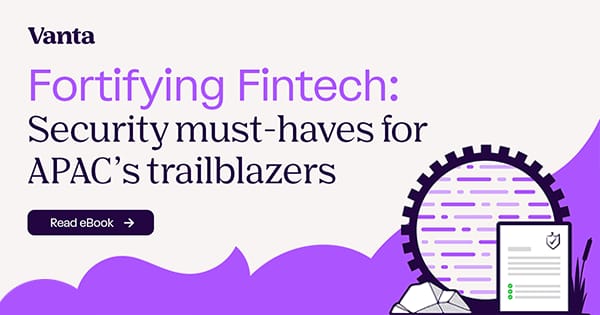- Equity Mates
- Posts
- 📈 Australia takes Microsoft to court | US, UK, Japan all hit all-time highs
📈 Australia takes Microsoft to court | US, UK, Japan all hit all-time highs
Here's what you need to know today

Australia’s competition regulator claims Microsoft misled 2.7 million Australian customers
Here’s what you need to know today
Australia’s competition regulator, the ACCC, has commenced proceedings against Microsoft, claiming the technology giant misled customers over price increases for Microsoft 365 subscriptions. The ACCC claim 2.7 million Microsoft customers in Australia were not aware they could opt-out of paying a higher subscription cost for Microsoft’s AI Copilot. (AFR)
The Australian government has refused to carve out an exemption to copyright laws for AI companies training new models. Such an exemption had been called for by some in Australia’s tech community, led by Atlassian cofounder Scott Farquhar. (Capital Brief)
American inflation ticked up again. In the month of September, the Consumer Price Index was up 0.3%. For the 12 months to September, inflation rose to 3%, up from 2.9% in August. This is the first time CPI has hit 3% since January, but was lower than the 3.1% expected. (CNN)
As a result of the softer-than-expected inflation reading, America’s S&P 500 rose 1% and hit new all-time highs. In London, the UK’s FTSE 100 index also hit all-time highs. (The Guardian)
The good news continued for investors. Japan’s share market also hit an all-time high with the Nikkei 225 index breaking 50,000 for the first time ever. Japan’s stock market is up more than 24% this year. (Bloomberg)
China and the US have reportedly reached the framework of a trade deal. US Treasury Secretary Scott Bessent said the agreement would delay China’s restrictions on rare earth minerals and would see China restart buying of US soybeans. It was unclear what the US would give to get the deal done. (NY Times)
In two separate incidents, 30 minutes apart, a US navy helicopter and a US navy fighter jet crashed in the South China Sea. 3 crew members of the helicopter and 2 aviators in the jet were all safely rescued. The causes of the crashes are unknown. (ABC News)
Argentina’s President Javier Milei has recieved an endorsement of his economic program with his party winning a decisive victory in the country’s midterm elections. His party, La Libertad Avanza, increased their Parliamentary seats from 37 to 64. (Capital Brief)
What the…?
Luxury brands are facing an unexpected rival: their own past collections.
The booming second-hand luxury market, estimated to be worth over $50bn, is attracting younger shoppers who prefer pre-owned pieces instead of new ones.
With demand for new luxury goods stagnating, many brands are trying to adapt to a market where yesterday’s products are today’s competition. (WSJ)
Investing is a lifelong journey
Here’s what you can learn today
The #1 goal of building wealth isn’t to build wealth
This is taken from the Equity Mates Book ‘Don’t Stress Just Invest’ (Amazon)
Resilience is the real return
“Wind extinguishes a candle and energizes fire. Likewise with randomness, uncertainty, chaos: you want to use them, not hide from them. You want to be the fire and wish for the wind.”
- Nassim Nicholas Taleb
It would be really helpful if someone was able to quantify exactly how much money we were going to spend in our lives. If they looked at our genetics, our lifestyle and our diets and calculated how long we were going to live for. Asked us if we wanted a family, where we wanted to live, when we wanted to retire and what we enjoyed doing. Punched it all into a giant computer and spat out our number: In your lifetime you will spend $3,562,902.
Every year, we could work, earn and spend and watch our counter tick lower and lower: You have $2,112,364 remaining.
And we could retire once our bank balance matched our remaining spending number.
Unfortunately, life doesn’t work like that. Who we are in the future is just as uncertain as the future of technology. Even the future value of our money is uncertain because of inflation. When faced with an uncertain future, what are we to do?
Invest and build wealth. Not so we can keep score and buy a bigger house, but so that we can build resilience into our lives. Managing your money, budgeting, investing, building wealth: these are not ends in themselves. They are ways to give our future selves more flexibility and choice. Because, as much as we hate to write this, money matters.
Angus Campbell, a psychologist at the University of Michigan studied happiness and found it was difficult to group those who were ‘happiest’ by any demographic factor. Income, education, location, age and geography weren’t great predictors of happiness. Instead, Campbell concluded that ‘having a strong sense of controlling one’s life is a more dependable predictor of positive feelings of wellbeing than any of the objective conditions of life we have considered’.
Building good money habits today will give us that control in the future. In most cases, having money available is what gives us control. Control over where we live. Control over what job we take (or, importantly, what job we leave). Control over our family size, our travel destinations, our retirement age. Over the course of our lives we will be hit by randomness, uncertainty and chaos. Financial shocks happen. Whether it is an unexpected pregnancy, a long-term illness, a business collapse, a messy divorce or a death in the family, the only thing we can be certain about is that our financial future is far from certain.
Much like Taleb, we want to be the fire and wish for the wind. We should start the journey of building wealth today, so we have choice tomorrow.
Don’t Stress Just Invest is available from all good bookstores, including Amazon
A message from Vanta
APAC’s fintech sector is booming. And so are security risks.
With rising compliance demands, growing cyber threats, and increasing reliance on third-party vendors, fintechs are under more pressure than ever to protect sensitive data and demonstrate trust.
This free guide explores how leading fintechs can navigate security risks without slowing down innovation. Here’s what’s inside:
Three biggest security challenges facing fintechs in APAC today
How automation helps fintechs accelerate compliance, build trust and manage vendor risk
Real-world case studies from fintech trailblazers who’ve scaled trust with Vanta
Learn how to overcome fintech security obstacles, so you can focus on business growth.

